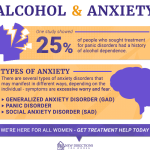If you’ve ever experienced pain, you know how important it is to find the best pain relief medicine. Whether it’s a headache, muscle ache, or a nagging back pain, finding the right solution can make all the difference in the world. So, what is the best pain relief medicine? In this article, we’ll explore different options and discuss their effectiveness, so you can make an informed decision and find the relief you’ve been searching for.
When it comes to pain relief, there are countless options available. From over-the-counter medications to prescription drugs, the choices can be overwhelming. But fear not, we’re here to guide you through the maze of pain relief options. We’ll delve into the benefits and potential side effects of various pain relief medicines, helping you understand which one might be the best fit for your needs. So, let’s dive in and explore the world of pain relief medicine together!
What is the Best Pain Relief Medicine?
Pain relief medicine is a crucial aspect of managing various types of pain, from headaches to chronic conditions. With numerous options available, it can be overwhelming to determine which one is the best for your specific needs. In this article, we will explore different types of pain relief medicines and discuss their effectiveness, potential side effects, and other important considerations. By the end, you will have a better understanding of the options available to you and be able to make an informed decision about the best pain relief medicine for your situation.
The Importance of Finding the Right Pain Relief Medicine
When it comes to managing pain, finding the right medicine is essential for ensuring relief and improving your quality of life. Different pain relief medicines work in various ways to target specific types of pain, so it’s crucial to understand your symptoms and the underlying cause of your pain. This knowledge will help you choose the most suitable medicine that can effectively alleviate your discomfort.
Over-the-Counter Pain Relief Medicines
One of the first options many people turn to for pain relief is over-the-counter (OTC) medicines. These medicines are easily accessible and do not require a prescription. Some common OTC pain relief medicines include acetaminophen, nonsteroidal anti-inflammatory drugs (NSAIDs) such as ibuprofen and naproxen sodium, and topical creams or gels.
Acetaminophen is often recommended for mild to moderate pain, such as headaches or muscle aches. It works by blocking pain signals in the brain. However, it’s important to note that acetaminophen does not have anti-inflammatory properties, so it may not be as effective for pain caused by inflammation.
NSAIDs, on the other hand, are effective in reducing pain, inflammation, and fever. They work by inhibiting the production of certain chemicals in the body that cause inflammation and pain. NSAIDs can be beneficial for various types of pain, including headaches, menstrual cramps, and joint pain. However, they may cause stomach upset or increase the risk of bleeding, especially if taken in high doses or for a prolonged period.
When using OTC pain relief medicines, it’s crucial to follow the recommended dosage and consult a healthcare professional if you have any underlying medical conditions or are taking other medications. It’s also important to be aware of potential side effects and drug interactions.
Prescription Pain Relief Medicines
For more severe or chronic pain, prescription pain relief medicines may be necessary. These medicines are typically recommended by a healthcare professional and require a prescription. They are often stronger and more targeted in their pain-relieving effects.
One common type of prescription pain relief medicine is opioids. Opioids work by binding to specific receptors in the brain and spinal cord, reducing the perception of pain. They can be highly effective for managing severe pain, such as that experienced after surgery or due to cancer. However, opioids also carry a risk of addiction and can cause drowsiness, constipation, and respiratory depression.
Other prescription pain relief medicines include corticosteroids, which are often used to reduce inflammation and relieve pain associated with conditions such as arthritis or autoimmune disorders. Antidepressants and anticonvulsants may also be prescribed for certain types of chronic pain, as they can help modulate pain signals in the brain.
It’s important to note that prescription pain relief medicines should only be used under the guidance of a healthcare professional. They may require regular monitoring and adjustments to ensure their effectiveness and minimize the risk of side effects.
Choosing the Best Pain Relief Medicine for You
When deciding on the best pain relief medicine for your needs, there are several factors to consider. Firstly, it’s important to assess the severity and type of pain you are experiencing. Mild to moderate pain may be effectively managed with OTC medicines, while more severe or chronic pain may require prescription options.
Additionally, consider any underlying medical conditions you may have, as certain pain relief medicines may interact with other medications or exacerbate certain health conditions. Consulting with a healthcare professional can help ensure you choose the most appropriate medicine and dosage for your specific situation.
Finally, it’s crucial to weigh the potential benefits and risks of each pain relief medicine. While all medications carry some level of risk, understanding the potential side effects and long-term implications can help you make an informed decision.
In conclusion, finding the best pain relief medicine involves considering your specific symptoms, the underlying cause of your pain, and any other medical conditions you may have. OTC pain relief medicines can be effective for mild to moderate pain, while prescription options may be necessary for more severe or chronic pain. Remember to always follow the recommended dosage and consult with a healthcare professional for personalized advice.
Key Takeaways: What is the Best Pain Relief Medicine?
- When it comes to pain relief, different medications work for different people.
- Over-the-counter pain relievers like acetaminophen and ibuprofen can be effective for mild to moderate pain.
- Prescription medications, such as opioids, are typically used for severe pain but come with potential risks and side effects.
- Non-drug options like physical therapy, acupuncture, and relaxation techniques can also provide relief.
- Ultimately, the best pain relief medicine varies depending on the individual and the type of pain they are experiencing.
Frequently Asked Questions
What are some effective pain relief medicines?
When it comes to finding the best pain relief medicine, there are several options available. Here are some of the most effective ones:
1. Nonsteroidal Anti-Inflammatory Drugs (NSAIDs): NSAIDs like ibuprofen and naproxen are commonly used to relieve pain caused by inflammation. They work by reducing the production of prostaglandins, which are responsible for pain and inflammation.
2. Acetaminophen: Acetaminophen is a popular pain reliever that can help reduce mild to moderate pain. Unlike NSAIDs, it does not have anti-inflammatory properties, but it is generally well-tolerated and can be a good option for those who cannot take NSAIDs due to certain health conditions.
Are there any natural pain relief remedies?
If you prefer natural remedies, there are several options you can consider for pain relief:
1. Turmeric: Turmeric contains a compound called curcumin, which has anti-inflammatory properties and may help reduce pain. You can add turmeric to your meals or take it as a supplement.
2. Ginger: Ginger has been used for centuries as a natural remedy for pain and inflammation. It can be consumed as a tea, added to meals, or taken in supplement form.
Is it safe to use over-the-counter pain relief medicines?
Over-the-counter (OTC) pain relief medicines are generally safe when used as directed. However, it is important to follow the recommended dosage and avoid exceeding the maximum daily limit. If you have any underlying health conditions or are taking other medications, it is always a good idea to consult with your healthcare provider before taking any OTC pain relief medicine.
Additionally, some OTC pain relief medicines may have potential side effects or interactions with certain medications, so it is important to read the labels and instructions carefully.
Can I take pain relief medicine for chronic pain?
If you are experiencing chronic pain, it is best to consult with a healthcare professional for proper diagnosis and treatment. Depending on the underlying cause of your pain, your doctor may recommend specific pain relief medications or other therapeutic interventions.
It is important to note that long-term use of certain pain relief medicines, such as opioids, can have potential risks and side effects. Your doctor will work with you to develop a personalized treatment plan that takes into account your specific needs and concerns.
What should I consider before taking pain relief medicine?
Before taking any pain relief medicine, consider the following:
1. Consult with your healthcare provider: If you have any underlying health conditions or are taking other medications, it is important to talk to your doctor before starting any new pain relief medicine.
2. Read the labels and instructions: Make sure to carefully read the labels and instructions of the pain relief medicine you are considering. Pay attention to the recommended dosage, possible side effects, and any precautions or warnings.
3. Follow the recommended dosage: Stick to the recommended dosage and avoid exceeding the maximum daily limit. Taking more than the recommended dose can increase the risk of side effects or complications.
4. Consider potential interactions: Some pain relief medicines may interact with certain medications or have contraindications for certain health conditions. It is important to be aware of any potential interactions and consult with your healthcare provider if needed.
Whats the best legal medication for back pain relief?
Final Thoughts
After exploring various pain relief medicines, it’s clear that finding the best one depends on your specific needs and preferences. While there isn’t a one-size-fits-all solution, there are several options worth considering. Remember, it’s always best to consult with a healthcare professional before starting any new medication.
When it comes to over-the-counter pain relievers, nonsteroidal anti-inflammatory drugs (NSAIDs) like ibuprofen and acetaminophen are commonly recommended. They offer effective relief for mild to moderate pain, such as headaches, muscle aches, and menstrual cramps. However, it’s important to follow the recommended dosage and avoid long-term use without medical supervision.
If you’re dealing with more severe pain, prescription medications like opioids may be prescribed by your doctor. These medications can provide significant relief but should be used cautiously due to the risk of dependence and potential side effects. It’s crucial to have open and honest discussions with your healthcare provider to weigh the benefits and risks of these medications.
In conclusion, finding the best pain relief medicine involves considering factors such as the type and intensity of pain, personal medical history, and professional guidance. Remember to prioritize your health and well-being by making informed decisions and seeking professional advice when needed.




